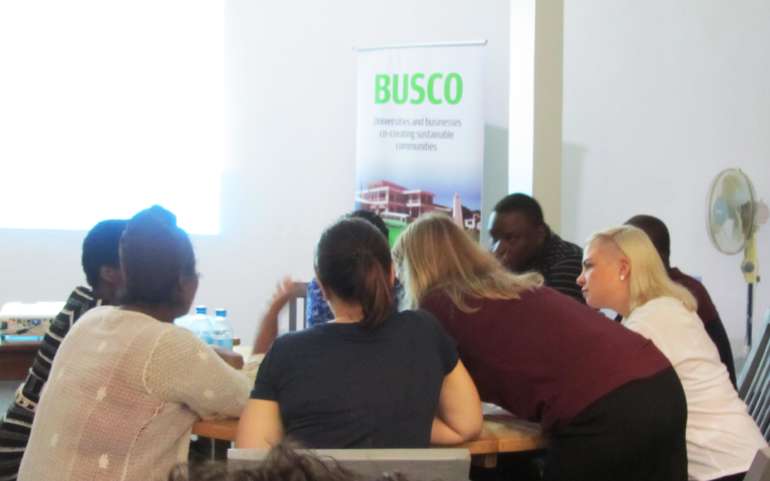Piloting the Master Programme

During the first semester of the studies, students in Finland have gone through the theories of community work development, human rights, sustainable development and practical working models. The programme is based on mixed methods: short monthly face-to-face lessons, individual and group assignments and a lot of material in an online learning environment.
Intensive course bringing students and staff together
The first semester included a two-week intensive course in Tanzania, Iringa, where almost all Diak students participated. The experience was memorable for all the participants: students and teachers, as well as local staff and key experts. Although Tanzanian partner universities were not able to launch the programme yet, the Tanzanian partners organised the programme and a number of Tanzanian students hosted Finnish visitors during the intensive course.
The intensive course included lectures and study visits to local communities in the Iringa region. The local visits were a part of students’ assignment of gathering data by different tools and using it in their studies. Later on they made an asset-based analysis of the community by using their knowledge from the study visit, literature and other information.
Their first ideas for development were discussed in joint sessions during the intensive week. Local stake holders were closely involved in the study process, for instance study visits were chosen in collaboration with the local stakeholders and linked to the University of Iringa Living Labs. According to the student feedback, the intensive course was successful, although more Tanzanian students were missed.
Fruitful cooperation
The second semester consisted largely of conflict resolution, human rights enforcement and management studies. Co-operation with the Finn Church Aid (FCA) provided students with a number of real conflict areas that work to resolve conflicts and build peace. Many students did their assignments either in connection with their own authentic work communities or for FCA. In the second semester, also thesis planning was started.
The third semester of the pilot group is focused on thesis process itself. Many students found interesting topics in collaboration with working life partners and communities. In the thesis community practices are studied and developed in different contexts either in Finland or internationally. From the pilot group around half of the students are estimated to graduate by the end of 2018.
The experiences of the first co-master have been positive. The cooperation with Tanzanian colleagues has worked well. Some of the teachers and key experts have visited each other’s countries and organised joint workshops and seminars. Common debates have created new understanding for each other’s societies and cultures. It is good to continue the cooperation from this.
Text: Ulla Siirto, key expert, Diak